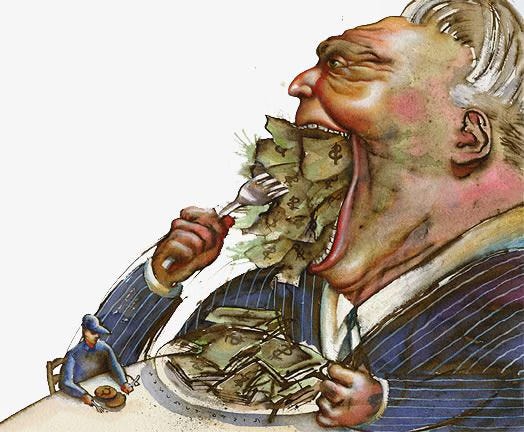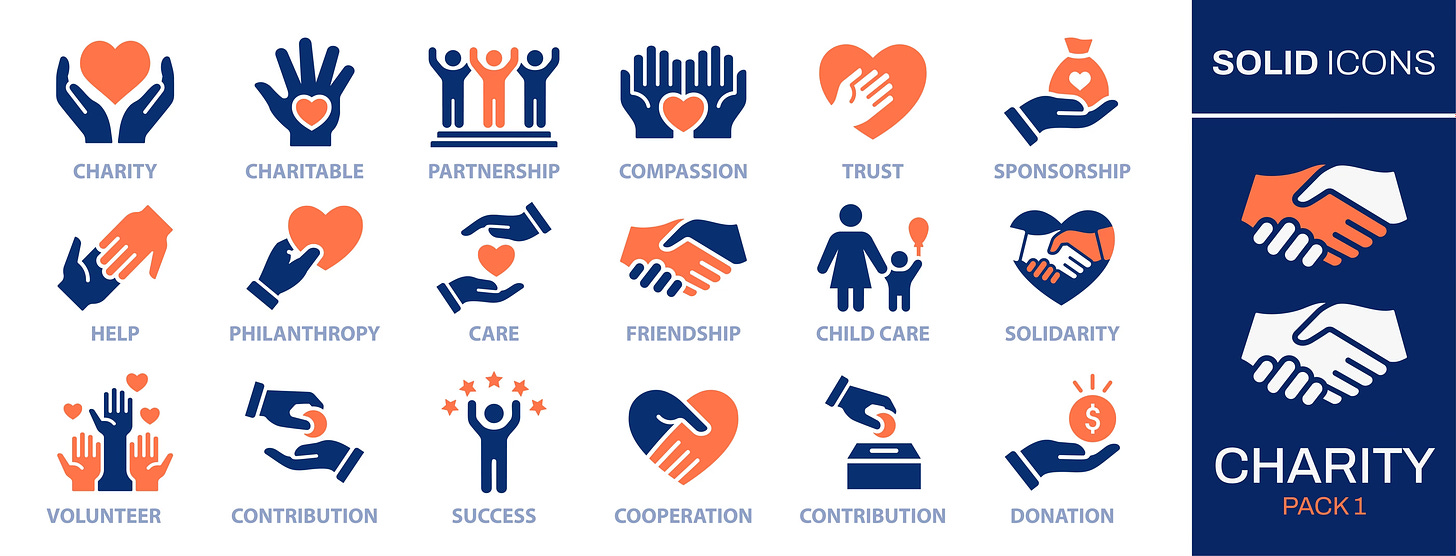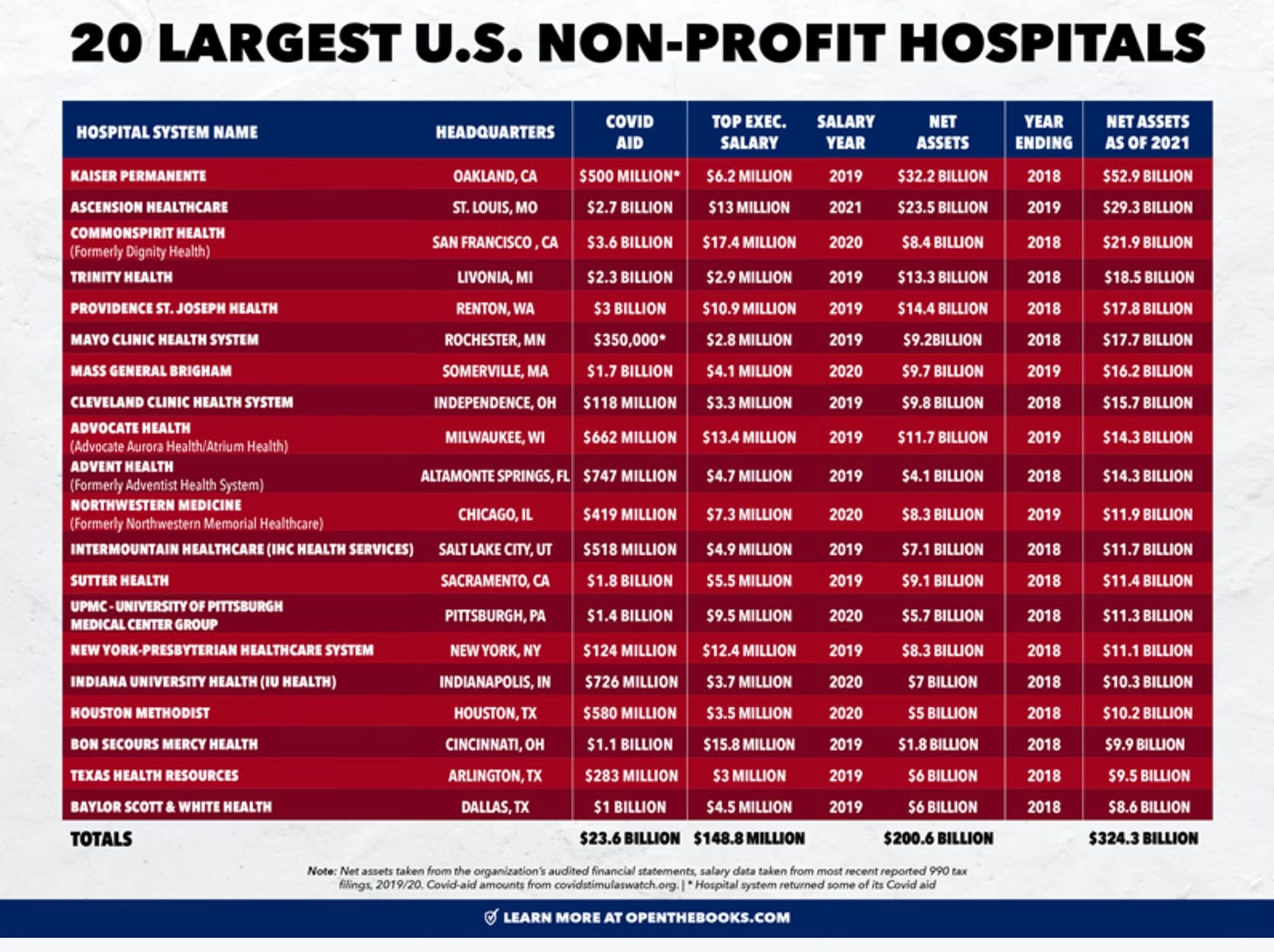Please Follow us on Gab, Minds, Telegram, Rumble, Gettr, Truth Social, Twitter
The tree of postmodern progressivism in the United States has socialist, fascist, and communist branches, each sharing one primary common enemy: business.
Millions of progressive Americans believe that, so long as businesses are allowed to exist, each should be regulated and taxed at high levels. Certain politically preferred businesses should be subsidized with tax dollars, and all businesses should be controlled by government bureaucrats and forced to serve the “public good”—as progressives define that term.

For progressives, an unregulated business operating freely is among the worst possibilities. What most of us call a free market is, for them, a living Hell on Earth. They cannot imagine business owners freely making whatever they want to make, offering products and services at prices they freely choose, freely offering jobs to those with whom they’d prefer to work, and freely deciding with whom they will or will not engage in business trades.
What progressive socialists, fascists, and communists hate most about business is profit. For progressives, the opposite of morality is not immorality; it is profit.
Their hatred for profit puts progressives in a dilemma of their own making: On one hand, they want human beings to be productive, to produce and provide housing, food, health care, education, and other valuable goods for others.
On the other hand, they do not want people incentivized by profit.

Thus, they are stuck: they want people to produce all the things others value, and they want human beings to invent, innovate, and work simply out of the goodness of their hearts—without any desire for profit—yet profit remains the greatest human incentive for productivity and value creation.
When describing businesses that offer remarkable services or life-saving technological advances driven by the desire for profit, many progressives practically spit the word profit from their mouths, as if it is inherently repugnant. The implication is clear: doing something good in order to earn profit is not good at all. It is, in their eyes, morally disgusting because profit is morally repulsive.
When everyday Americans refer to charitable organizations as “nonprofits,” they unwittingly support progressive animosity toward profit. Whether they realize it or not, the very term nonprofit perpetuates the notion that profit is somehow shameful.
Consider a typical conversation in which someone refers to a “nonprofit,” almost always implying it is honest and trustworthy. For many Americans, anything considered nonprofit must be good precisely because it does not generate profit.
An unspoken premise underlies this way of talking: the progressive view that profit itself is bad. Profitable businesses are assumed to be inherently suspicious and untrustworthy, requiring continuous oversight and regulation, because the desire for profit is presumably the root cause of lying, cheating, theft, and fraud.
By contrast, nonprofits are presumed to be free of such vices. Why would they lie or steal if they don’t care about profit? Inside a nonprofit, one presumably finds only warm-hearted, generous, caring, trustworthy people—or so many Americans believe.

Each time an American speaks of a “nonprofit” as if it is automatically more trustworthy than a typical profit-driven business, that individual reinforces the progressive assumption that businesses are bad because profits are bad.
The distinction between nonprofits and for-profit businesses is highly misleading because the term “nonprofit” is a misnomer. Whether an organization is profitable or not is entirely separate from its tax status.
On the one hand, a business formed as a Sole Proprietorship, LLC, or C-Corporation can be nonprofitable if its expenses consistently exceed its revenues—such a business is on a path to closure.

Likewise, a charity or foundation that is “nonprofitable,” with persistently higher expenses than revenues, will soon close its doors because it cannot pay its bills.
On the other hand, a 501(c)(3) charity or foundation can be highly profitable, and many are. When a charity raises more money than it spends, the surplus can be used to raise executives’ salaries, compensate employees, and reward board members.
Some charities pay their top executives enormous salaries paired with additional perks—cars, expense accounts, and so forth—simply because revenues are so robust.

The key difference between a charity and a business is not profitability but tax status. A charity is tax-exempt, whereas a business is non-tax-exempt.
It is ironic that, while many Americans complain about businesses not paying their “fair share” in taxes, highly successful charities and foundations that raise more money than they know what to do with, pay no taxes at all.
In the United States, charitable organizations—such as churches, schools, and other entities—have long been recognized as tax-exempt, stretching back to the 19th century, well before the modern 501(c)(3) designation was introduced in the 1954 Internal Revenue Code.
For example, the Revenue Act of 1913, passed after the 16th Amendment authorized a federal income tax, included specific language exempting charitable entities from taxation. Subsequent laws, like the Revenue Acts of 1917 and 1921, expanded and refined these exemptions. The 1954 Code reorganized and renumbered many of these provisions under §501(c)(3).
Early federal tax laws used terms such as “charitable,” “religious,” “educational,” or “eleemosynary” organizations, instead of “nonprofit.” Prior to the 1930s, Americans colloquially spoke of “charities” or “tax-exempt groups.”
Only after President Franklin D. Roosevelt spent the 1930s and half of the 1940s demonizing businesses—and the concept of profit—did the term “nonprofit” gain traction in the United States.

Before FDR was President, most Americans viewed business as an opportunity for individuals to be productive, provide value for others, and, by earning profit, create wealth for themselves and their families.
Many Americans admired successful businesspeople, recognizing that it was possible—even for those starting out poor—to build a profitable business enterprise while helping others in the process.
When Franklin Roosevelt first ran for President in 1932 (and was reelected in 1936, 1940, and 1944), he opened his campaign by proclaiming: “A builder of more industrial plants, a creator of more railroad systems, an organizer of more corporations, is as likely to be a danger as a help.”
Reflect on that statement. In 1932, the soon-to-be President of the United States—elected four times in a row—publicly declared American business owners a threat to their fellow citizens. By the time he died in 1945, FDR had persuaded millions of Americans that businesses are predatory and untrustworthy, and that only unelected federal bureaucrats could protect ordinary people from the threat posed by profit-seeking entrepreneurs.
By the 1960s, “profit” had become a dirty word in American parlance. Simultaneously, growing numbers of Americans began referring to charities and tax-exempt organizations as “nonprofit,” invoking the term as a stamp of moral purity, unsullied by the “greedy” pursuit of profit.
Meanwhile, the pursuit of profit continued to incentivize unprecedented prosperity, fostering the greatest innovations and inventions the world has ever known. Yet, countless Americans still assume that profit is inherently bad and continue to describe tax-exempt charities as “nonprofit,” a term that, for most people, denotes moral purity, honesty, and trustworthiness.
It’s time to use more accurate language. If you are referring to an organization that is unsuccessful, loses money, is not valued by others, and on its way to closing, please, call it “nonprofit”—whether it is a business or a charity.
However, if you intend to refer to the tax status of an organization, remember that some entities are required by law to pay taxes—these we call businesses—and other entities are exempt from paying taxes—these we call charities.
Both tax-paying businesses and tax-exempt charities aim for revenues that exceed expenses. Both want to be “profitable,” in the sense of consistently generating more income than costs.
Hence, the term “nonprofit” is fundamentally misleading. Virtually any organization—whether tax-exempt or non-tax-exempt—seeks to avoid losing money and ultimately aims to run a surplus. Profit is not the enemy; it is the incentive that drives creativity, productivity, and innovation, from which everyone benefits.
Where people are free to pursue profit, one finds improving standards of living, increased life expectancy, and widespread prosperity. Where people are prohibited from trying to earn profit, one finds totalitarianism, persistent poverty, and widespread human misery—and even within the guarded walls of tyranny, many people produce and trade and run businesses in black markets. The human desire to earn profit is so strong that even the most powerful and controlling tyrants cannot snuff it out, at least, not fully.
Dr. Thomas L. Krannawitter is the former VP of The Claremont Institute, and former Professor at Hillsdale College & Claremont McKenna College. You can follow Dr. Krannawitter's Substack, Liberty Lyceum: Zetetic Questions for the Zeitgeist, here: https://tkrannawitter.substack.com/
Most enlightening and fully contained for understanding. Now, if we can just widen the brainbox a bit from the ideologically confused, a win.
Channeling Miss Othmar from 'Peanuts' fame, “Wah, wah-wah, wah, wah,...“.
The left has been coopting the language since Lenin.
Tell us something we don't already know.
Just don't say, 'progressive'
or, 'pride month'
or, 'undocumented immigrant'
or, 'pro-choice'
or 'climate change'
or, 'profit',
etc.,
and give them leverage.
Really?
How about this?
How about we stop wringing hands, worry less about the semantics, get in the dirt and employ some SHAME.
Relentlessly.
Shame?
What the heck are you talking about, peasant?
Well...
Stop perverting my child, CT Dems!
Prosecute Planned Parenthood now!!!
Stop breathing morons, you're killing the planet!
CT DEMs for Depravity
My Pronouns are: Mommy/Usurper/Despot (beneath a cartoon of ---)
and hundreds more messages prominently plastered around the State.
Shame.
CT Republicans - win the crowd, turn the culture, or you may as well go back to your sandbox.
Get in the damned fight.
Interesting that those whom most vocally decry the notion of sin and sinful behavior, call the desire for profit a sinful vice.
Can't have it both ways, McGee... But then consistency, intellectual integrity and scholarship is not what we look for from the left, is it?